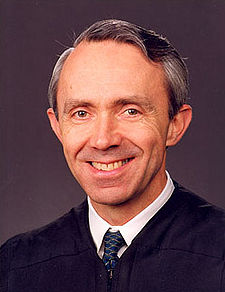4 to 1 to 4
After the issuance of a particularly fractured decision, featuring multiple concurrences and dissents, former Chief Justice Rehnquist once quipped, “I didn’t know we had that many people on our Court.” The quote came to mind after reading a recent Supreme Court decision, Arizona v. Gant, in which Justice Scalia did something rather unusual and, from the perspective of those tasked with application of the Court’s often splintered decisions, laudatory. He provided the fifth vote needed to produce a majority opinion, despite the fact that he did not entirely agree with the opinion he joined.
In Gant, the Court addressed the scope of the “search-incident-to-arrest” exception to the warrant requirement established in Chimel v. California. In Chimel, the Court held that police may, incident to an arrest, search the area within the arrestee’s immediate control, i.e., the area from within which he might gain possession of a weapon or destructible evidence. In New York v. Belton, the Court extended the rule, holding that police may also search the passenger compartment of the vehicle from which an arrestee was taken. Most lower courts understood Belton to permit a vehicle search incident to arrest even when there was no real possibility that the arrestee could gain access to the vehicle at the time of the search. Some courts even allowed a search under Belton when the handcuffed arrestee had already left the scene.
Gant presented an opportunity to narrow this construction of the Belton rule.


